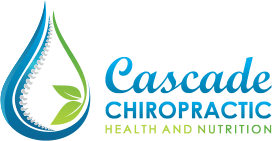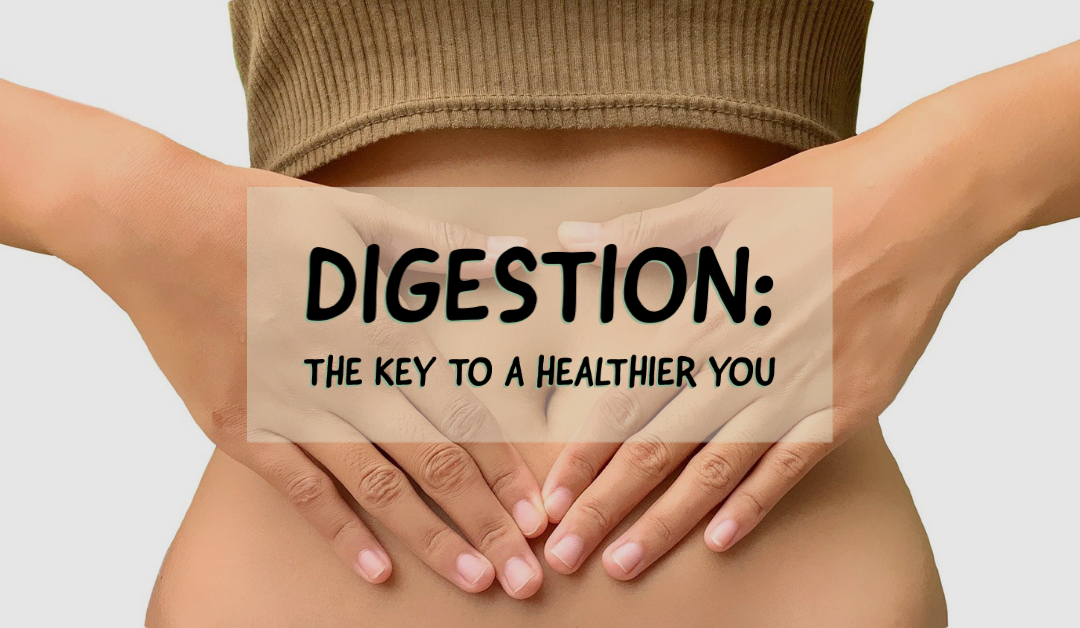If someone were to ask you about your digestion, chances are you would jump to the conclusion that they were asking about the quality and quantity of your bathroom visits, right? But it is so much more than that! We are going to explore exactly what it means to have great digestion and how important it really is.
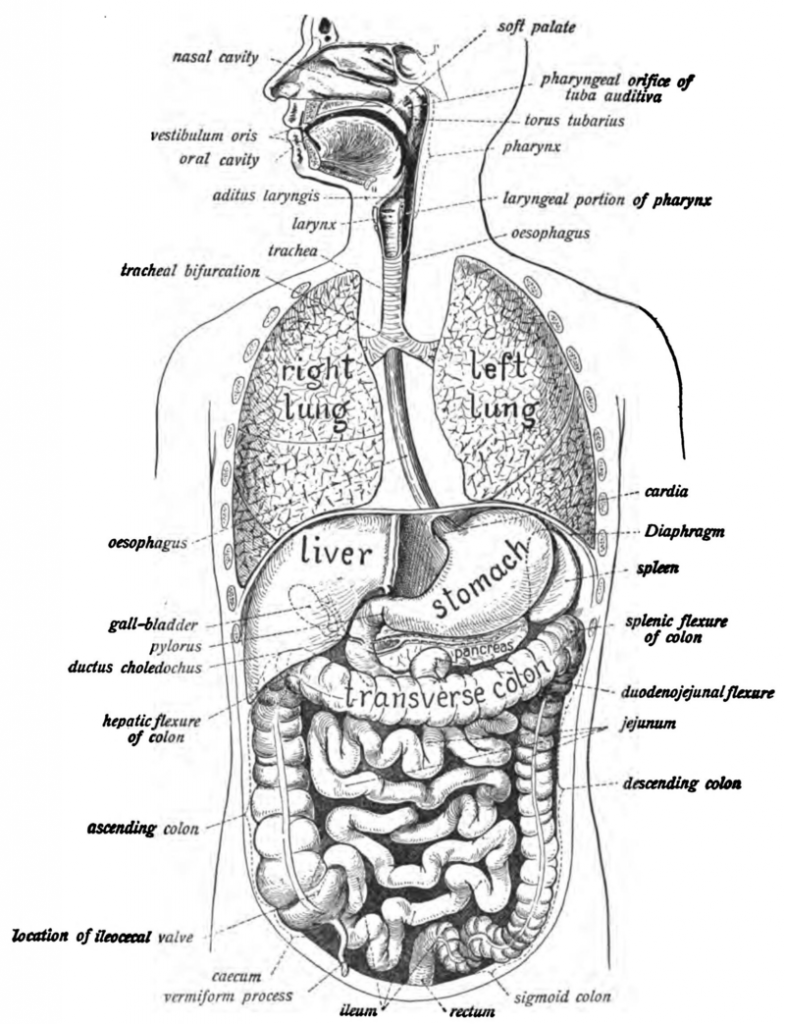
Digestion, as we know it in the functional nutrition world, begins with our foods journey entering the mouth, where chewing initiates the production of saliva. It then continues on through to the stomach where protein is digested, we call this Upper Digestion or Phase 1. In the next step it dumps into the small intestine where liver and pancreatic enzymes join the party and at this point it no longer resembles the hamburger or salad that you ate; think of this as Phase 2. Enzymes and good bacteria do a majority of the digesting of fats and carbohydrates here. Vitamins, amino acids, and fatty acids are moved from the intestine through the gut wall to the blood stream. Once the food has completed its journey through the small intestine it moves on to the large intestine; Phase 3. The large intestine is where more of our nutrients and water are reabsorbed back into the blood stream leaving only the trash to be eliminated.
Whew! That’s a lot of changes just to get lunch to turn into ATP (the energy a cell needs to function).
What does it look like if our digestive system isn’t working right?
- Indigestion
- IBS – Irritable Bowel Syndrome
- Heartburn
- Diarrhea
- Reflux/GERD
- Constipation
- Weight Gain
- Floating stools
- Bloating/Gas
- Colitis
- Burping after meals
- Hemorrhoids
- Bad breath
- Ulcers
- Thin/Cracking nails
- Thinning hair
Some of these symptoms are pretty serious, and it’s important to treat the root cause of the problem, not just the symptoms.
But what ARE the causes of digestive issues?
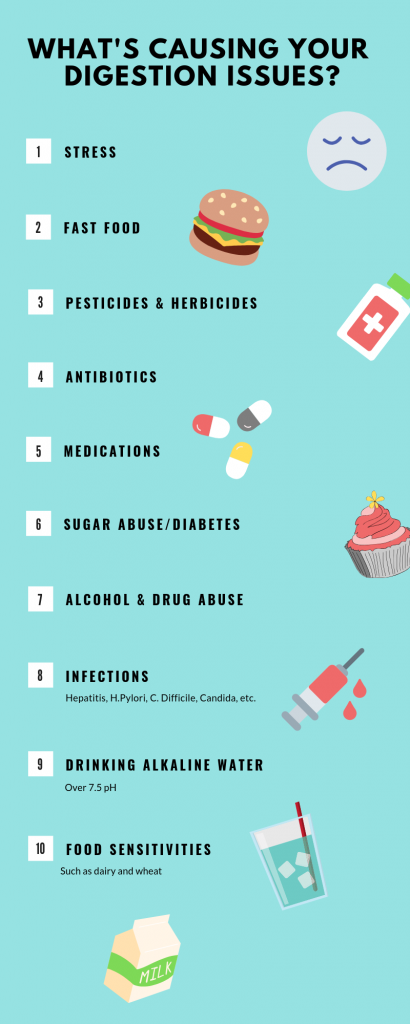
These and more can lead to a disrupted digestive system. I have patients who have been on prescription medications for years that are intended to be used for a maximum of 6 weeks, while others have had to have sections of their bowel removed due to chronic inflammation, as in Chrohn’s or colitis. If we don’t fix the underlying issue when our symptoms begin, often times the body will adapt and continue to deteriorate. It is always a good idea to look for the underlying condition so that we can resume a homeostatic or balanced gut function as soon as possible.
This problem is HUGE!!
In 2014 Americans spent approximately $2,000,000,000 (billion) on antacid tablets and liquids such as: Omeprazole, Tums, Prilosec, Rolaids, Zantac, Pepto Bismol, etc. I would say that digestion is a pretty big problem, and sadly none of these actually fix the underlying problem.
To begin to address the underlying cause, we need to talk about physiology for a minute. The normal pH of the stomach is very acidic, between 1 and 2, (like battery acid) so that we can absorb our minerals and digest our protein. Antacids change the pH of the stomach to anywhere between 5 and 11 which is very alkaline, and it can lead to reduced symptoms, however we no longer digest our protein or absorb our minerals very well. This type of fix is like the oil light flashing on your car dashboard and you removing the light-bulb! Not a good long term fix right??
Like the low oil in your car signaling the light to come on, low levels of digestive enzymes can trigger heartburn, indigestion and slow stomach emptying. Oftentimes what we need is an up-regulation of the quality or quantity of digestive enzymes to make protein digestion in the stomach more efficient and promote the emptying of the stomach contents into the small intestine. When this happens, it sets up a chain reaction for the rest of the digestive system to function more effectively! Its a win-win!
So what are some things we can do at home?
- Chew our food really well
- Try not to drink too much liquid during mealtime so that we don’t dilute our acid. If you’re over 50, you may need to consider a digestive enzyme since you make less stomach acid
- Avoid alkaline water unless you have a specific condition that warrants it
- Don’t eat and watch TV or eat and drive, or eat and play on your phone. Eating is part of the parasympathetic nervous system, which is rest and digest, so just eat for best results
- Avoid high sugar foods
- Eat organic when possible to reduce your pesticide and herbicide exposure
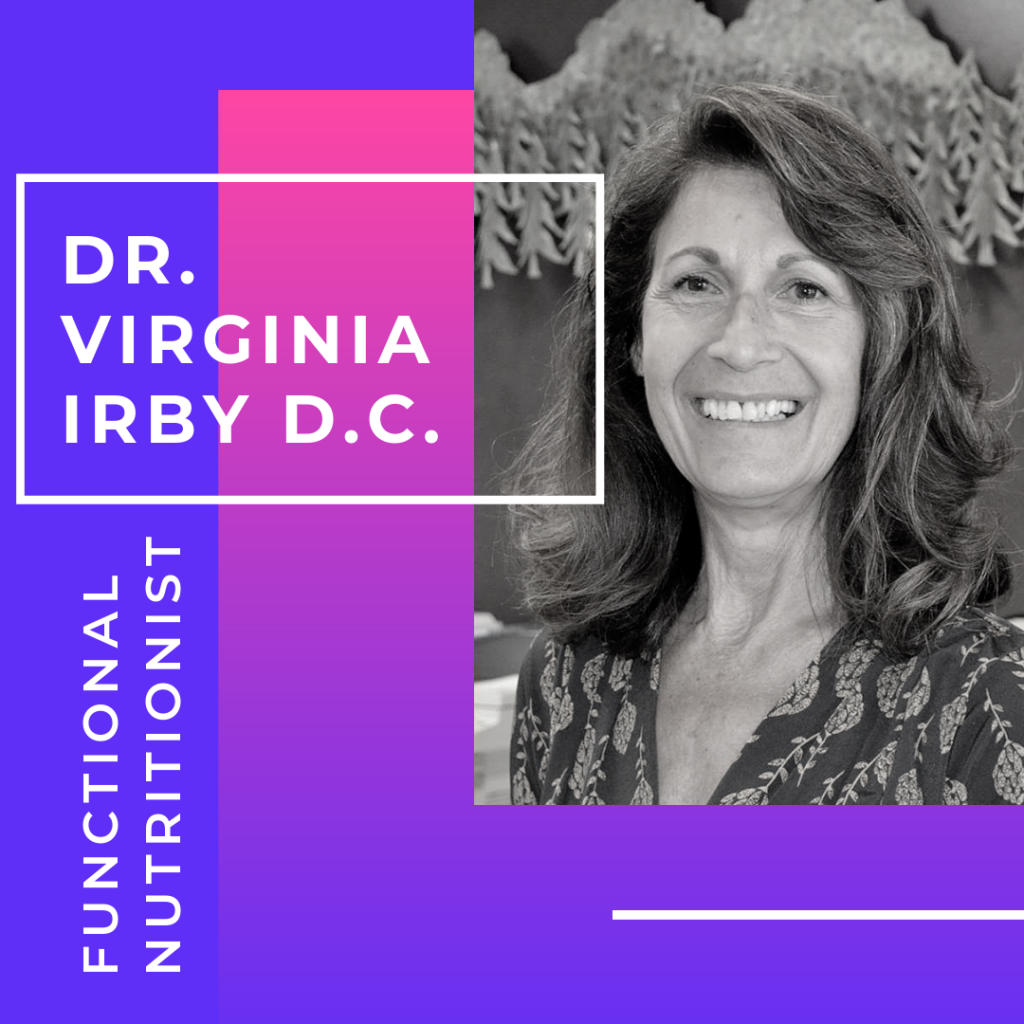
If those aren’t enough, it may be necessary to get some whole food supplement or herbal digestive support from your local functional nutritionist or holistic healthcare provider
When digestion is working well, we are converting food into energy, we have less cravings, we optimize our fuel efficiency, we are providing our body with the needed nutrients to make repairs and build muscle and bones.
In summary, as we optimize digestion, we improve the breakdown of our food, we eliminate more efficiently, and we glean more energy and nutrients from our food allowing us to eat less and store less. What do you need to do to improve your digestion? Let us help you figure out which component needs support.
Sources: www.statista.com/statistics/194538/leading-us-antacid-tablet-vendors-in-2013-based-on-sales/
CONTACT:
Dr. Virginia S. Irby D.C.,DABCO, ACN
Cascade Chiropractic
2371 Iron Point Rd. Ste. 130
Folsom, CA 95630
916-844-2800
